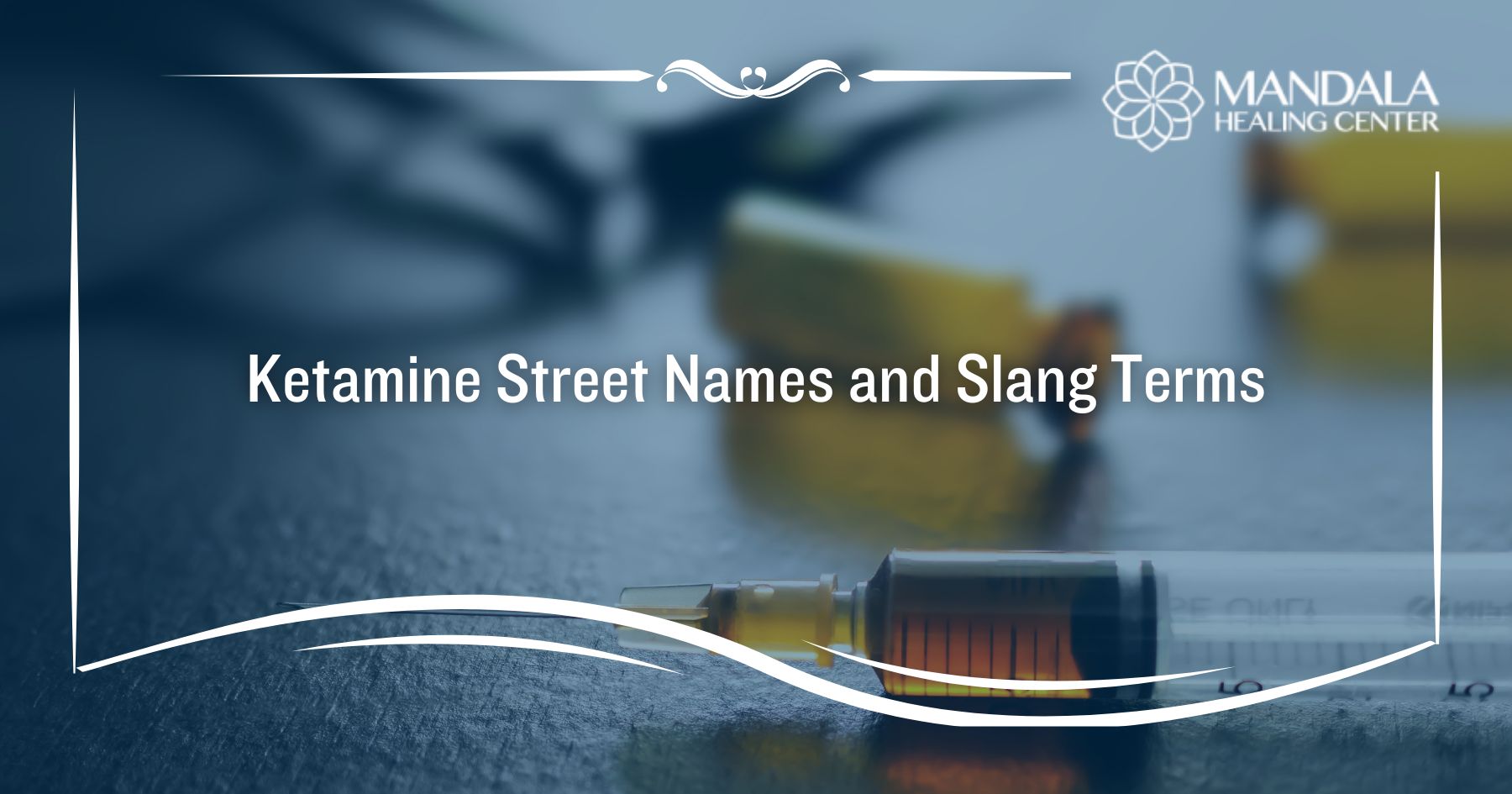Ketamine is a dissociative anesthetic drug that is often abused by young adults. It is FDA-approved to treat mental health issues like depression or PTSD in small doses. However, people who misuse ketamine do so in much larger amounts.
Ketamine is considered a controlled substance, as people use it to get high. According to the National Institute on Drug Abuse (NIDA), 7.4 million people in the United States reported using hallucinogens like ketamine in 2021.
People refer to ketamine as a club drug because it is often used in night clubs or raves. Individuals in these scenes like the hallucinogenic effects it can cause. Ketamine abuse can also lead to memory loss, high blood pressure, and other health problems.
If you are worried that someone you love is abusing ketamine, being aware of drug slang can help you determine if they need help. Many people use nicknames or slang terms to refer to drugs secretly. Examples of ketamine street names include Special K and Kit Kat.
What are the Side Effects of Ketamine?
Ketamine is a dissociative anesthetic, which means it can induce a trance-like state at certain doses. It comes in many forms, including liquid, powder, tablets, and even nasal spray. In other words, people can smoke, snort, or swallow ketamine.
The common effects of ketamine include:
- Sensory perception changes
- Feeling disconnected from one’s body or surroundings
- Increased heart rate and blood pressure
- Slurred speech and blurry vision
- Unconsciousness and amnesia
- Rapid eye movements and dilated pupils
- Visual and auditory disturbances
- Loss of physical sensations
- Temporary paralysis
Because ketamine can cause unconsciousness and amnesia, it is often used as a date rape drug. Predators might spike someone’s drink with ketamine to commit sexual assault. If you or a loved one believes they have been assaulted, speak with authorities or a mental health professional for support.
Can You Overdose on Ketamine?
If you take high doses of ketamine, it is possible to overdose. Unfortunately, the effects of a ketamine overdose can be life-threatening. Being aware of the symptoms can ensure you know when it’s time to call emergency medical services.
The symptoms of a ketamine overdose include:
- Sedation or loss of consciousness
- Slowed or stopped breathing
- Low blood pressure
- Slowed heart rate
- Cardiac arrest
- Stupor
- Seizures
- Coma
If you or someone you love is experiencing the symptoms of a ketamine overdose, contact 911. Emergency medical personnel can provide life-saving treatments to prevent an overdose from becoming lethal.
Addiction treatment programs can help you overcome a ketamine addiction. These facilities will offer you the tools and services you need to achieve long-term recovery.
What are the Street Names and Slang Terms for Ketamine?
If your loved one is abusing ketamine, they might refer to it in slang terms. People do this to prevent their loved ones from finding out they are abusing drugs. By knowing the street names for ketamine, you can determine whether your loved one is misusing it.
The common street names for ketamine include:
- Special K
- Bump
- Cat Killer
- Cat Valium
- Fort Dodge
- Green
- Green K
- Honey oil
- Jet
- K or Ket
- Kit kat
- Psychedelic Heroin
- Purple
- Special La coke
- Super acid
- Super C
- Vitamin K
People might also use slang terms to describe different levels of ketamine intoxication, including:
- K Land- refers to a mellow experience where colors are brighter
- K Hole- refers to an out-of-body experience
- Baby Food- refers to a blissful experience where someone feels like an infant again
- God- users are so intoxicated they believe they have met God
Ketamine can be addictive when abused frequently. If someone you love has a hard time controlling how much ketamine they use, they might need to attend a drug rehab program. Treatment centers like Mandala Healing Center can offer evidence-based therapies and compassionate care to help you achieve recovery.
How to Tell if Your Loved One is Abusing Ketamine
If your loved one is abusing ketamine, they will display the physical signs of intoxication. This could include dilated pupils, disorientation, or changes in sensory perception. However, they might isolate themselves from you when they are under the influence.
Because your loved one might be hiding their ketamine use, it’s important to be aware of other signs. The behavioral symptoms of ketamine abuse include:
- Isolating from friends and loved ones
- Aggressive or violent behavior
- Insomnia
- Slurred speech
- Continuing to use ketamine despite facing physical or mental health effects
- Strong cravings to abuse ketamine
- Taking higher doses of ketamine to experience the desired effect
- Experiencing money issues or having a hard time holding a job
- Losing interest in previously enjoyed activities
- Changing friend groups and going out to clubs frequently
Ketamine addiction can cause a person to change their priorities. Instead of caring about work, school, or family, obtaining and using ketamine becomes the most important thing in their life. This might cause them to steal and lie to abuse ketamine.
If your loved one is struggling with ketamine addiction, Mandala Healing Center can help. We offer comprehensive addiction treatment services, including medical detox.
Finding Help for Ketamine Abuse and Addiction
Ketamine addiction can be incredibly difficult to overcome. Long-term abuse of a dissociative drug can lead to long-lasting mental health issues. Thankfully, rehab programs like Mandala Healing Center can help you overcome addiction and any lasting psychological effects you struggle with.
Contact us today for more information on our ketamine addiction treatment programs.












